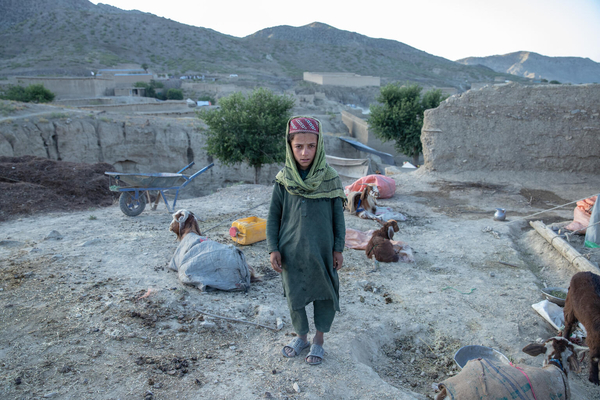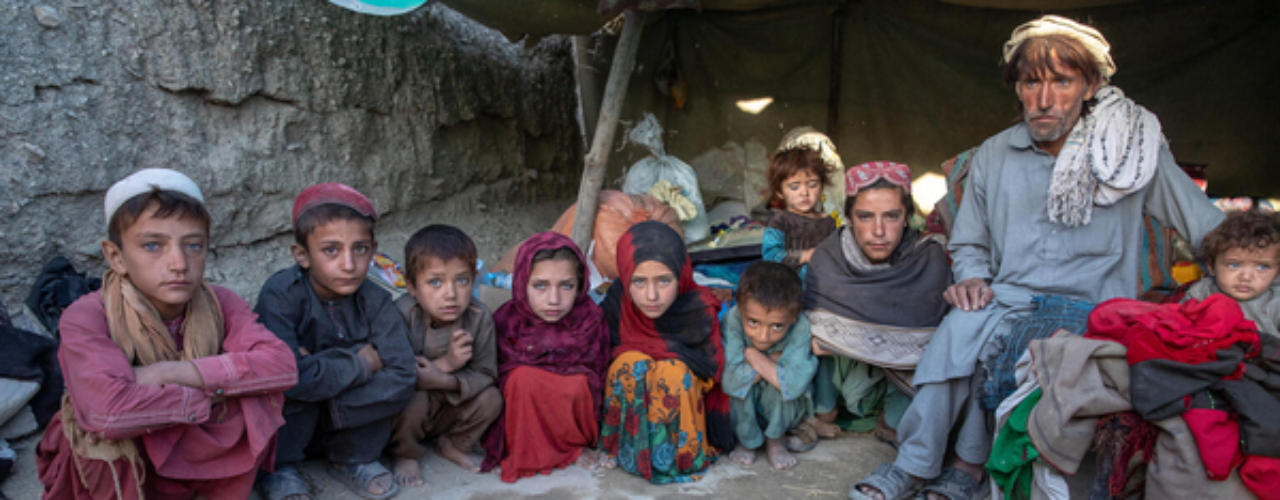Missing the bigger picture

Olivier Immig is a historian and an Afghanistan and Pakistan expert. Olivier Immig has an impressive list of publications and is often invited by media to explain the complex context and history of Afghanistan, Pakistan and neighbouring countries. In November 2022, Olivier Immig shared thought-provoking feedback during an expert meeting where KUNO presented the preliminary findings of the Afghanistan study. After this session KUNO finalized the booklet: “Balancing between ambition and wishful thinking: Learning from 20 years of Dutch involvement in Afghanistan”.
An interdisciplinary approach is essential...
Olivier Immig expressed that he appreciated that the booklet reflected the variety of actors involved in the 20 years of Dutch involvement in Afghanistan. All of these actors must be considered in such an evaluation, since excluding one or more would result in an incomplete narrative. Olivier Immig linked this good practice of the study to a missed opportunity of the Dutch missions in Afghanistan. For the missions, it was essential to thoroughly comprehend the context and cultural background, which can be extremely varied in Afghanistan. Prior to the missions in Afghanistan, a context analysis should have been done to better understand the cultural context. However, the Netherlands failed to carry out such an in-depth context analysis beforehand. In other words, an integrated, interdisciplinary approach should have been pivotal for the Dutch involvement in Afghanistan. In Afghanistan, it took the Netherlands too long to embrace this interdisciplinary approach.
... and a broader perspective is highly needed
Olivier Immig emphasised that a very important lesson from this story is that it is also vital to consider the bigger picture in advance. Specifically for Afghanistan, this means that a longer historical context analysis that began with the Afghan state formation in the 1960s/70s, not simply the departure of the Russians in 1989, should have been conducted prior to all the missions. In order to understand the power relations in the region, you have to look at when the democratic process, and actually all instability, began. After all, why did the Russians fail to take control of Afghanistan then? A thoroughly researched answer to this question could also have given the Netherlands a lot of information. Moreover, the KUNO-booklet lacked an analysis of the neighbouring countries. Those who want to understand key developments inside Afghanistan should also take into account the balance of power in the region, especially with Pakistan and Iran.
The shortcomings of Dutch politics
Olivier Immig explained that the main shortcomings of Dutch politics regarding the involvement in Afghanistan were the absence of a long-term orientation and an overestimation of our own capabilities, something that the KUNO-booklet also concluded. Politics is extremely short-term oriented; most politicians made decisions about Afghanistan without immersing themselves in the Afghan context and were mainly guided by domestic political interests.
Olivier Immig continued that during such a prolonged involvement in a country, decision- makers need to be receptive to dissenting opinions that do not align with their own. The KUNO booklet concluded that this had not been the case regarding Afghanistan. However, Olivier Immig emphasised that the Dutch involvement in Afghanistan has been overestimated, in part because they chose to not listen to critical opinions and to adopt a way of wishful thinking.

The fall of Kabul
After the Western troops left Afghanistan (August 2021), the take-over by the Taliban occurred faster than anyone had thought, even surprising the Taliban themselves. Olivier Immig had hoped that in Afghanistan a young generation had tasted the other reality of freedom, and would therefore offer some resistance to the conservative and extremely religious Taliban regime. However, even this younger generation remained largely silent and has completely disappeared from sight since August, 2021. A number of members of this generation even radicalised. While Olivier Immig acknowledged that the 20 years of western involvement in Afghanistan also had positive effects, he is currently not optimistic about the future. Life under Taliban rule in Afghanistan is really not easy, and getting worse. Perhaps except for a few positives, but they are fast becoming rarer.
Essentially, Afghanistan is still an emirate with a religious movement in power. It is difficult to imagine/create an alternative to the Taliban, and talking to the Taliban is challenging. The Taliban find it very difficult to actually listen to others who hold different beliefs or views. Olivier Immig emphasised the fact that this is no unique feature. In this regard, these Taliban show an interesting resemblance to the (radical) conservatives in the United States. Both exhibit tunnel vision, closed off from an imperfect, hostile outside world and views different from their own.
On the question of blame for the failure of the Afghan republic, Olivier Immig provided one critical remark. “Although it is natural and fully justified to be critical of how the West has failed, Afghans themselves have also contributed solidly to the failure of the Afghan republic.” Specifically those higher up in governmental positions. Consider for instance, the huge sums of money funneled abroad by corrupt Afghan administrators between 2002 and 2021 or the luxurious life they now lead in Dubai. Since Afghans have really been given many opportunities, the West cannot solely be blamed.
Better to stay home?
When the booklet was presented, KUNO received the question whether the booklet’s conclusion could be that we, as the Netherlands, should simply never again go on missions abroad – especially in faraway difficult countries like Afghanistan. Olivier Immig disagreed: “I understand the urge, but staying at home is out of the question. Globalisation may be on the wane, but we need to work together precisely to tackle the major crises of our time. Besides, our chances for at least some success are significantly better than, say, those of people in Bangladesh or Pakistan.
We will thus have to continue to explore where we can contribute, but perhaps with adjusted and updated expectations.
In the past 20 years, Afghanistan proved (again) to be a complex context for humanitarian NGOs to operate in. Dutch humanitarian, political, military and development organisations were all present, with objectives that sometimes overlapped, but also contradicted each other. KUNO spoke to many different actors that were involved in Afghanistan, and combined these in a booklet. This can be found here.
